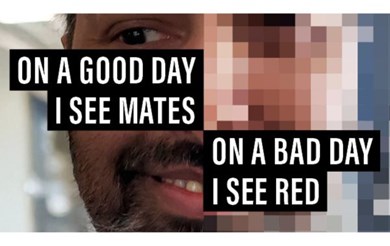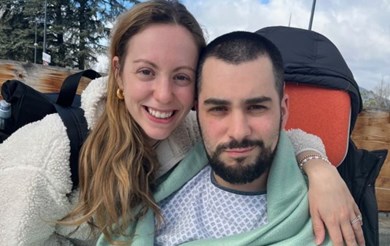When Funding Fails
When Funding Fails by Headway - the brain injury association is based on a survey of local independent Headway charities who describe the struggle for survival in the face of chronic underfunding as they try to meet rising demand with shrinking resources.
Many Headway charities told of delays in assessments for new brain injury survivors, while existing clients have had their support hours cut and transport costs denied meaning they can’t attend the essential rehabilitation services they need.
Several Headway charities described cashflow problems due to local authorities not paying their invoices on time, while other charities and volunteer-led branches have since closed their doors, leaving local areas without any means of support for survivors.
The report findings
The results from When Funding Fails show that brain injury services are at crisis point- and Headway is calling for immediate Government investment in community rehabilitation for brain injury survivors.
The report highlights that:
- 57% of Headway charities surveyed experienced delays in receiving payments from local authorities and Integrated Care Boards (ICBs). Some charities have had to employ additional staff members purely to chase the debts they are owed, while others simply do not have the capacity to chase, so debts accrue, and reserves are used.
- Over the last two years, almost 10% of the local Headway network have had to close their doors for good. Another is scheduled to close this summer. This equates to six local areas where brain injury survivors are no longer receiving support that meets their needs.
- Only 37% thought that their Headway charity would be sustainable in the long term (5 years or more). 63% said their charity was not sustainable or were not sure. Reasons for not being sustainable included; public sector financial pressures, difficulties staying afloat amidst a cost-of-living crisis, rising operational costs and unstable, unsustainable and inconsistent commissioning practices.
- When existing clients’ needs are reassessed by local authorities or ICBs, survivors told of having their support hours cut, transport costs denied meaning they can’t attend Headway, and even being told they do not need Headway services anymore – when their needs have not fundamentally changed, and never will, due to the permanent nature of their brain injuries.
With survivors across the UK facing funding delay issues, Headway is calling on the government to increase funding for specialist rehabilitation and support services for brain injury survivors.
Headway's asks to the government
They are asking the government to:
- Fund national training for local authority and ICB commissioners and social workers on the complex, hidden, and fluctuating effects of brain injury, which are often misunderstood in care assessments.
- Increase and ringfence funding for community-based specialist brain injury services, such as those provided by Headway.
- Reduce waiting times and improve assessment systems by equipping adult social care teams with the resources and expertise to identify both immediate and long-term care needs of brain injury survivors.
- Expand the Fair Payment Code to local authorities and ICBs, encouraging payment within 30 days and recognising those who meet this standard - supporting the sustainability of vital brain injury services.
Luke Griggs, Chief Executive at Headway, said:
“This report lays bare the devastating impact that funding cuts can have on brain injury survivors and their families up and down the country.
“Without urgent investment, many local Headway charities face the real risk of closure. If these specialist services disappear, brain injury survivors will be pushed towards more costly – and often wholly inappropriate – state services that are ill-equipped to meet their complex needs. This is a false economy with devastating human consequences.”
Read the full report
Click on the link to view the full When Funding Fails Report.
Back











